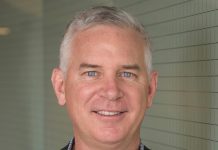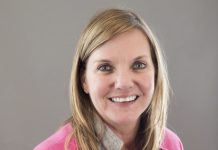Matt Spoke is the CEO of Moves Financial, a fintech service for independent workers for the gig economy. He wants these workers to overcome the specific challenges posed by the new model.
With Moves, Matt Spoke wants to cater directly to the emerging demographic because they are either “overlooked or ineligible for products offered by traditional financial institutions.”
Since independent gig workers buy and maintain their own equipment, they don’t enjoy the “same financial security as salaried employees.” Matt Spoke understands this scenario.
This is why Matt Spoke started Moves. He wants the gig workers to join the pursuit for independence by relieving them of some of the financial uncertainty they’re experiencing.
At Moves, Matt Spoke leads the development of products that don’t rely on “outdated credit scores,” and which allow the company to “know our users better over time, and help them improve their financial health.”
Likewise, Matt Spoke and Moves operate according to their values of service, flexibility, and fairness. They “strive at all times to be fast and responsive to our customers.”
Second, Matt Spoke wants Moves to be flexible. They work to accommodate their customers’ “different ways of working and earning income.”
Finally, Matt Spoke wants his customers to believe that they also “deserve the same financial choices as everyone else,” which is why the company only offers them “fair rates and terms.”
Check out more interviews with gig economy disruptors here.
For better or for worse, our company is a story of constant change and adaptability. Matt Spoke, Moves Financial
Jerome Knyszewski: What do you think makes your company stand out? Can you share a story?
Matt Spoke: For better or for worse, our company is a story of constant change and adaptability.
We’ve been lucky to have the capacity to keep testing ideas and hypotheses, and we’ve come close to significant success. But we’ve had to learn to pivot and adapt.
At the beginning of 2020, I decided to pivot the company towards an entirely new business and problem — to focus on building a product for gig workers.
We were a team of over 60 people, in 3 countries at the time. Not everyone was as convinced or excited as I was.
2020 was a year of change. Today, most of the team is new within the past 9 months. We’re about 25 people, all in Toronto.
There were some difficult decisions necessary to get here.
But the energy and excitement about our mission is palpable. We’re going to have an incredible 2021.
Jerome Knyszewski: Often leaders are asked to share the best advice they received. But let’s reverse the question. Can you share a story about advice you’ve received that you now wish you never followed?
Matt Spoke: Early on, I put a lot of emphasis into building relationships with “advisors.”
I had never built a business before, I was not perfectly confident in my abilities as an entrepreneur, and it was comforting to know that there was a group of people I could turn to.
The challenge was that advisors expect to be incentivized, and in my early experience I didn’t know what was fair.
I definitely overpaid and prioritized the wrong types of advisors, who frankly didn’t have the skills or experience I needed to be valuable to me.
With the exception of one, who I still keep in close company, I should have been significantly more ambitious in who I could attract as advisors, and I should have trusted that I had 95% of the competence I needed to solve problems on my own without the “comfort” of inexperienced people around me.
I think long-term sustainable success starts with compassion.
Jerome Knyszewski: You are a successful business leader. Which three character traits do you think were most instrumental to your success? Can you please share a story or example for each?
Matt Spoke:
Compassion — I’ve been on the other side of “cutthroat” investors and business people. There was a time when I thought that was what would be required of me to find success.
I don’t believe that anymore. I think long-term sustainable success starts with compassion.
The people I work with are committing their professional lives to my vision. I owe them compassion.
In our day to day interactions, in difficult discussions and personnel decisions, in general.
The companies we work with are more important than the functional problems they help us solve.
I want them to believe in where we’re heading, so I prioritize building meaningful relationships that extend beyond our business transactions.
The customers we support are not profit margins. They’re people with real problems who are entrusting us to help them.
Compassion means prioritizing what’s best for them before prioritizing what’s best for us.
Ultimately, I may miss certain opportunities because I’m not the most cutthroat guy in the room. But I’m confident that my approach wins over the long term.
Decisiveness — This is one I’m still working on, but I know will become increasingly important as our business gets more complex.
The challenge with decisiveness, is that it can sometimes feel like it goes against compassion. But that’s just the perception; it’s not true.
The risk of being the “nice guy” is the inability to make a decision, put your foot down, or upset colleagues for disagreeing with their perspective on an issue.
Part of being a compassionate and decisive leader is listening to input, making people feel valued and heard, but then being efficient in pulling the trigger on a decision.
What I’ve learned is that, as much as people like working for the nice guy, they won’t be able to do their jobs well without decisive leadership.
Self Awareness — I’ve come to learn that I am not the best at everything. In fact, I’m not the best at most things.
Effectively, I’ve been able to accomplish what I have because of the people around me.
The best way to hire the best people is to first recognize your own limitations and prioritize hiring someone who is better than you in their role.
A CEO who thinks they are the best at all things and has the right answers to all questions will tend to hire people beneath them in competence, rather than above them. This leads to slow decay in a company, where the culture prioritizes people’s egos rather than what’s best for the business.
In any hiring decision I make now, I try to gauge self awareness in candidates. I want to hire great people who are confident enough to say when they don’t have the right answer.
Jerome Knyszewski: Which tips would you recommend to your colleagues in your industry to help them to thrive and not “burn out”?
Matt Spoke: Productivity is not measured in hours worked; it’s measured in output.
I think there’s too much emphasis in the startup world on signalling to others that you’re a hard worker — the so-called “hustle porn.”
This mentality leads entrepreneurs to believe that they have to work themselves to the bone to be viewed as successful.
There’s only one outcome to this: burnout.
Focus on finding your best methods to be your most productive self. What energizes you? Where are you most focused?
What non-work activity helps you disconnect and recharge?
Obviously being an entrepreneur is hard work. You will work late nights. You will wake yourself up with an idea that you need to write down right now.
But balance this with time to think, time to read, time to connect with people outside your work, time with family.
Building a business is a marathon. If you sprint through the first mile, you’ll never make it.
Jerome Knyszewski: What are the most common mistakes you have seen CEOs & founders make when they start a business? What can be done to avoid those errors?
Matt Spoke: A very dangerous trap for early entrepreneurs is not knowing how to say no to things that seem flattering.
Public recognition should not be on your list of priorities early in building your business.
And lots of people would love to “pick your brain,” but more often than not, they’re wasting your time.
This includes junior VCs reaching out to you to “learn more about your business.” This is very rarely how funding decisions happen, so learn to say no to people.
Your time is your most valuable resource. Don’t share it with anyone who isn’t directly adding value to your current priorities.
The jump from being to entrepreneur to being a CEO is a never-ending learning experience. Matt Spoke
Jerome Knyszewski: In your experience, which aspect of running a company tends to be most underestimated? Can you explain or give an example?
Matt Spoke: Being an entrepreneur with an idea, energy and skill is how a lot of people get started.
What I didn’t fully appreciate is that eventually (if you find success), you have to learn how to build a team, manage people, get alignment to your vision, and put in place the right culture and environment for your team to succeed at the highest levels.
This has been the most difficult learning experience for me thus far. Managing people is hard.
Building the right structure, and aligning people to the right goals, using the best frameworks, is hard.
But if you go in eyes wide open, with a willingness to learn from companies that have gone down this path before, you can handle it.
The jump from being to entrepreneur to being a CEO is a never-ending learning experience.
Jerome Knyszewski: You are a person of great influence. If you could start a movement that would bring the most amount of good to the most amount of people, what would that be? You never know what your idea can trigger. 🙂
Matt Spoke: This may be obvious given what I’m building at Moves, but the reason I’m most excited about my business is because it’s rooted in a movement that will help tens of millions of people.
Gig workers now make up the single largest workforce in America, and they are completely voiceless and unrepresented. We hope to change that.
The future of our labor markets will either elevate people to their full potential or commoditize them down to a set of replaceable skills. We exist to ensure it’s the former.
Jerome Knyszewski: How can our readers further follow you online?
Matt Spoke: Best place is always on Twitter at @mattspoke
Jerome Knyszewski: This was very inspiring. Thank you so much for the time you spent with this!





